Finding the best peppers to grow in New Jersey was not as easy as I thought. Some require extensive care, others are prone to pests, and lots are just not simple & quick enough to grow.
That’s why I created a list of the 10 Best Peppers to Grow in New Jersey!
This ultimate guide will give you the best peppers to grow, why you should grow them, and even how to grow them.
Read THIS Before Growing Peppers in New Jersey
Knowing what hardiness zone New Jersey is in is critical to understanding the best peppers that can be grown.
It can be the difference between your peppers thriving and providing a bountiful yield or producing nothing.
New Jersey is mostly considered Hardiness Zone 5, while some of the lower-level regions are Hardiness Zone 6.
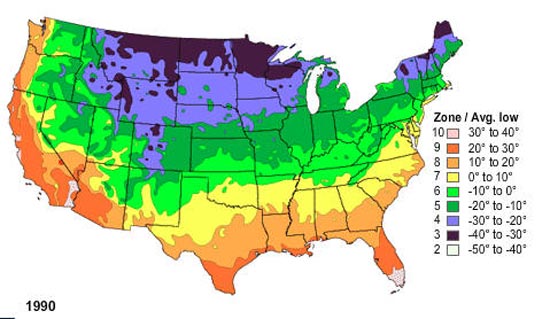
10 Best Peppers to Grow in New Jersey
#1. Anaheim Peppers
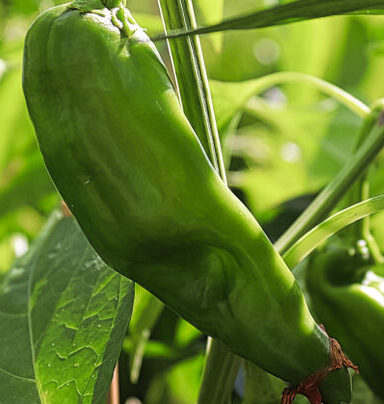
Days to Maturity: 80 Days
Why Grow Anaheim Peppers in New Jersey?
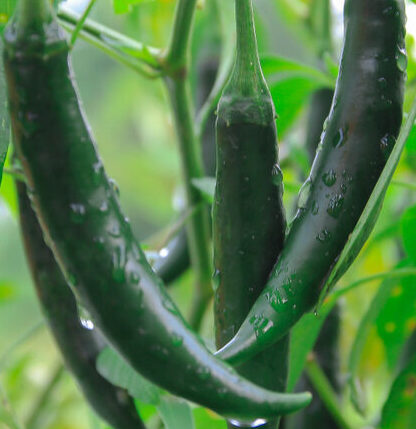
Stuffed, Fried, Salsa:
- Anaheim Peppers are one of the most popular peppers in New Jersey. It can be stuffed, fried for mexican dishes, and even used in salsa dishes.
Perfect for ANY Garden:
- Anaheim Peppers are perfect for urban gardening and even gardeners with little space. It is great in gardening containers, raised garden beds, and even indoors.
Disease Resistant
- Anaheim Peppers are the perfect type of pepper to grow if you have problems with diseases. They are especially immuned to root rot and most garden insects.
THESE Could Harm Your Anaheim Peppers
Pests:
- Deer, Rabbits, & Squirrels LOVE young Anaheim Pepper Plants. If left unprotected these pests will eat your plants before it can even grow.
Insects:
- You’ll most likely find insects on your Anaheim Peppers in spring or fall when the weather is cool or wet. If you plant it in the shade where the soil is damp you should expect insects too.
Extreme Wet:
- While rare in New Jersey, extreme periods of rain or wetness will hurt your peppers. It can cause fungus that will affect the number of peppers that will grow and even can hinder your plants’ growth.
Additional Resources
Learn How to Grow Peppers from Seed HERE
#2. Bell Peppers
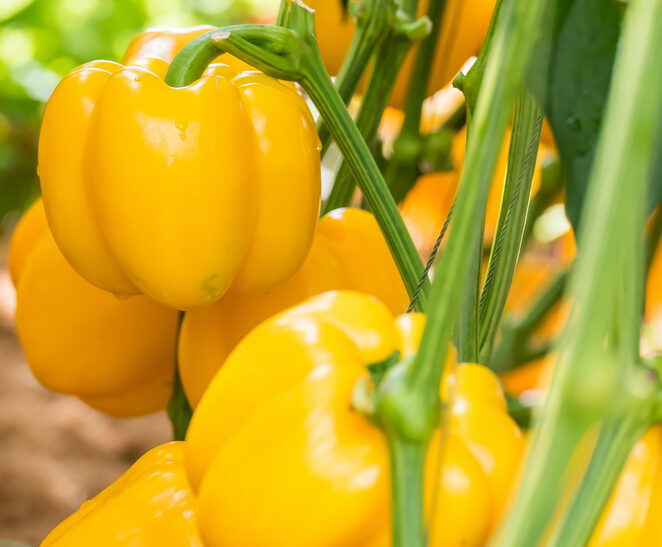
Days to Maturity: 70 Days
Why Grow Bell Peppers in New Jersey?
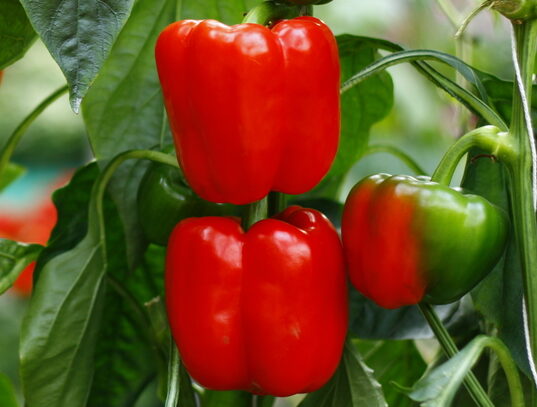
Hybrid:
- The Bell Pepper is a hybrid bell pepper, meaning it carries the best characteristics of peppers without the weaknesses of heirloom peppers. Out of all the hybrid peppers, it is the hardiest, tastiest, and easiest one to grow.
Thrives in Heat:
- Bell peppers love heat. The hotter and more humid the better your Bell peppers will do. You should even expect more peppers because Bell peppers love New Jersey’s summer.
Perfect in Pots:
- If there is any pepper that can be grown in gardening pots in New Jersey, it’s Bell peppers. This is one of the most adaptive peppers, making it perfect for beginner gardeners in New Jersey.
THESE Could Harm Your Bell Peppers
Pests
- Like almost any other type of pepper, pests love Bell Pepper plants. Not only that, but they will also endulge in your baby peppers if they are not protected by a fence or pests spray.
Cold Weather
- If you have cold and wet summers then Bell peppers will become stunted, diseased, and potentially will even die.
#3. Jalapeno Peppers
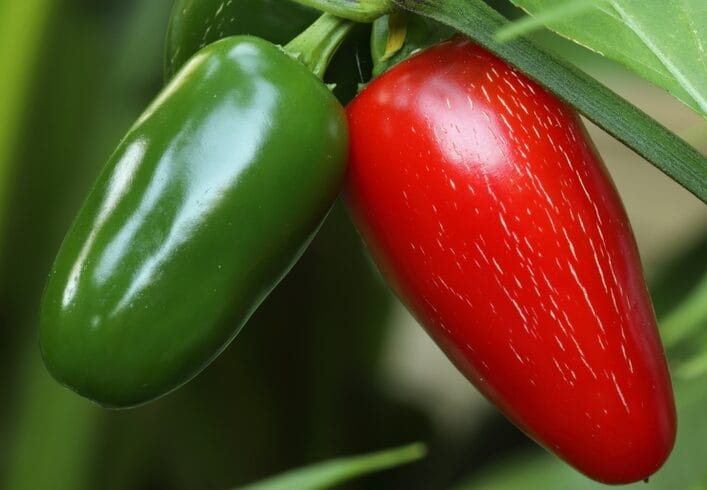
Days to Maturity: 80 Days
Why Grow Jalapeno Peppers in New Jersey?
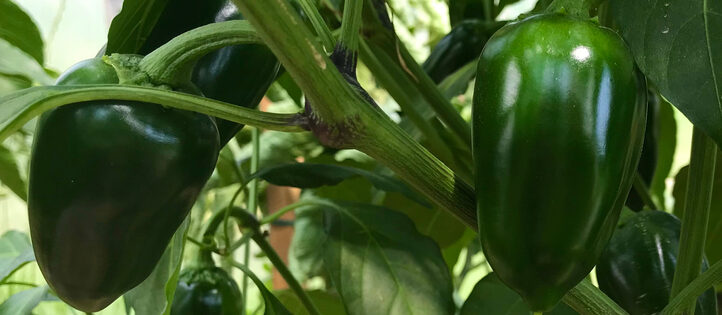
Thrives in Heat:
- Jalapeno Peppers love dry, hot, and humid weather making it the perfect plant for New Jersey’s summer. Best of all is that you will more jalapenos than you know what to do with once they bloom.
Fast Growing:
- Jalapeno Peppers are one of the fastest growing peppers you can have in your garden. And once they grow flowers you can expect an extraordinary amount of peppers on your plant.
Perfect in Raised Garden Beds & Pots:
- Jalapeno Peppers do not need much room. They also grow great among other vegetables and plants. This makes it perfect for raised garden beds and gardening pots, which is one of the most popular techniques of gardening in New Jersey.
THESE Could Harm Your Jalapeno Peppers
Cold:
- There are some types of Peppers that can tolerate cold. Jalapeno Peppers are not one of them though. If there is a late frost in the spring they will die and if there is an early frost in the fall they will die. In addition, if late spring and early summer is cooler than usual the jalapeno pepper will not grow as well.
Wet & Rain:
- Too much rain and wetness can cause your Jalapeno Peppers to quickly become infected with fungus or other diseases that will cause the plant to die earlier than expected hindering the amount of peppers you’ll be able to harvest.
#4. Habanero Peppers
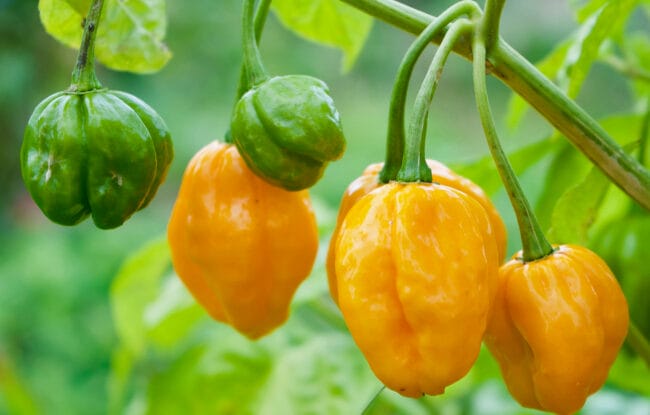
Days to Maturity: 80 Days
Why Grow Habanero Peppers in New Jersey?
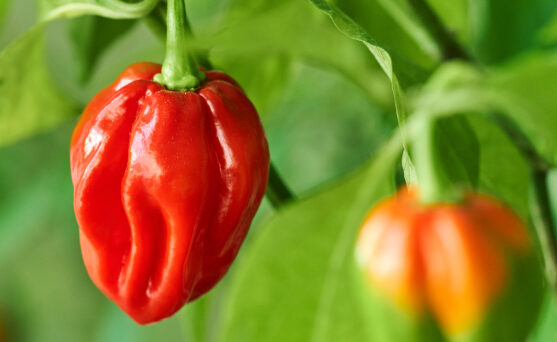
Thrives in the heat:
- As the summers get warmer Habanero Peppers continue to get bigger and hotter. Look no further for a low-maintenance vegetable.
Great for Vertical Gardening:
- Habanero Peppers are considered a great vegetable for vertical gardening. Because of this, you can train them to grow vertically, which is perfect for gardeners who have little space.
Perfect in All Types of Garden:
- Some vegetables only do well in the ground. Not habanero peppers. You can grow them in containers, window boxes, raised garden beds, and even in poor soil.
THESE Could Harm Your Peppers
Cold:
- There are some types of Peppers that can tolerate cold. Habanero Peppers are not one of them though. If there is a late frost in the spring they will die and if there is an early frost in the fall they will die. In addition, if late spring and early summer is cooler than usual the jalapeno pepper will not grow as well.
Wet & Rain:
- Too much rain and wetness can cause your Habanero Peppers to quickly become infected with fungus or other diseases that will cause the plant to die earlier than expected hindering the amount of peppers you’ll be able to harvest.
#5. Italian Peppers
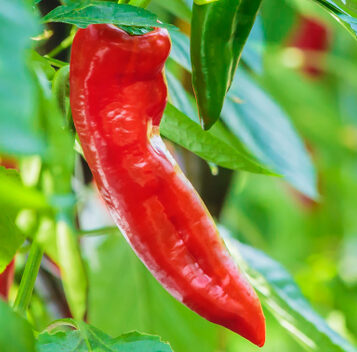
Days to Maturity: 85 Days
Why Grow Italian Peppers in New Jersey?
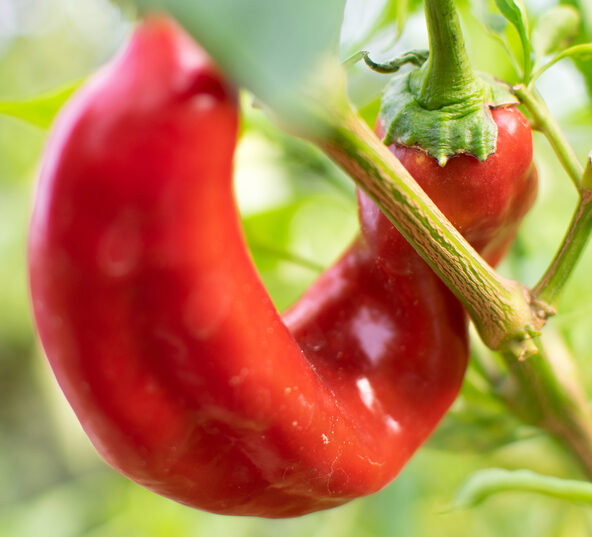
Perfect for Cooking:
- Out of all the peppers on this list, the Italian pepper is the best one for cooking. You can fry it, stuff it, eat it raw, add it to salsa, and so much more! It’s the perfect pepper for almost any culinary need.
Provides All-Summer Harvest:
- Italian peppers is one of the few types of peppers that you will be able to harvest from as early as June to as late as November if planted right. The more you pick, the more will grow! This means you will be able to enjoy it almost all year long.
Disease Resistant:
- One of the biggest disadvantages of growing peppers is that they are prone to disease and insect attacks, such as Japanese beetles Out of all the peppers, the italian pepper is one of the most disease resistant peppers you can grow throughout New Jersey.
THESE Could Harm Your Peppers
Birds, Squirrels, Rabbits, & Chipmunks:
- These pests will generally not harm your actual peppers. But they will immediately eat pepper flowers and leaves if you do not protect them with netting or rodent spray. They will even sometimes eat your actual peppers.
Poor Soil:
- In general peppers can grow in most soil. But if you want your italian peppers to thrive they need great soil. Poor soil that has little nutrients or that is all clay will inhibit full growth of your plant and prevent peppers from fully growing.
#6. Banana Peppers
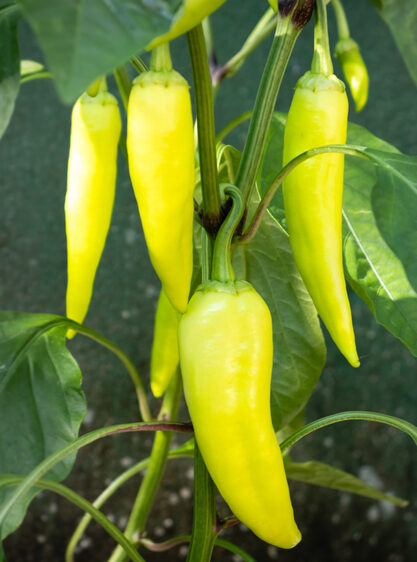
Days to Maturity: 70 days
Why Grow Banana Peppers in New Jersey?
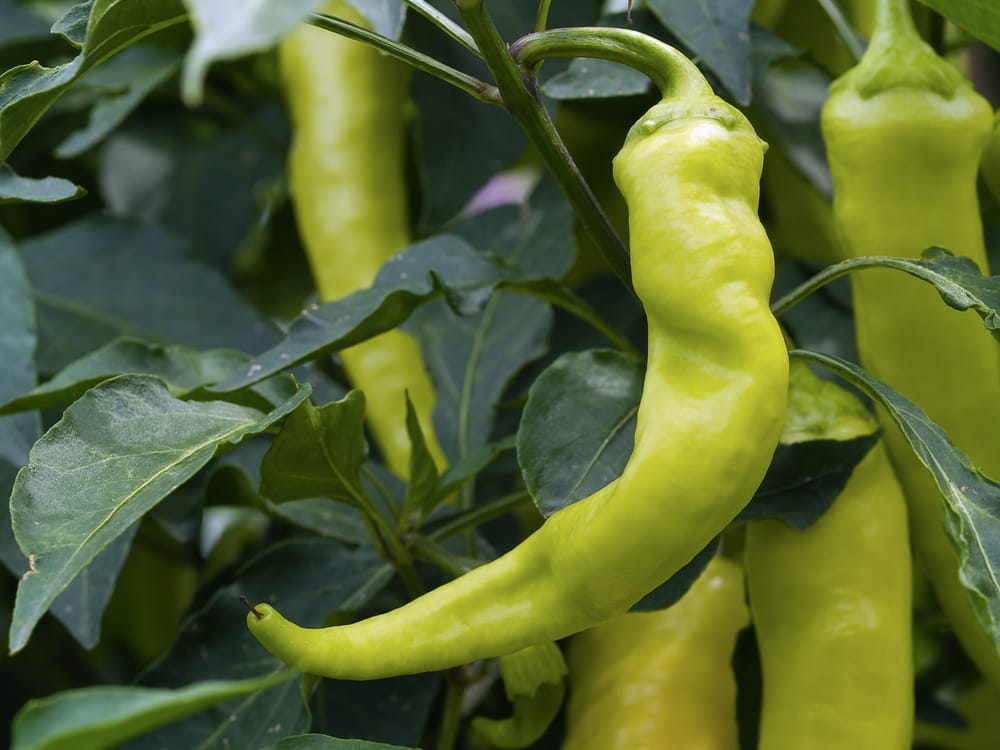
Disease & Insect Resistant:
- Banana Peppers are a type of pepper that is incredibly resistant to diseases and insects, making it perfect for beginner gardeners who want to try growing peppers for the first time.
Lots & Lots of Harvest:
- Banana Peppers are one type of pepper that produces some of highest yield out of all peppers. Best of all is that it it can provide a harvest throughout the fall and up to the first frost.
Perfect for Small Gardens:
- Banana Peppers are considered compact plants. This means they are smaller pepper plants that are perfect for small gardens, raised garden beds, and even in areas next to your house.
THESE Could Harm Your Banana Peppers
Birds & Rodents:
- These pests will generally not harm your actual pepper plants. What they will do though is immediately eat pepper flowers if you do not protect them with netting or rodent spray.
Shade:
- Banana peppers do not handle shade well. Like many peppers it needs heat and sunshine to thrive, but expect little to no crop if it does not have a consistent amount of sunlight throughout the day.
#7. Cayenne Peppers
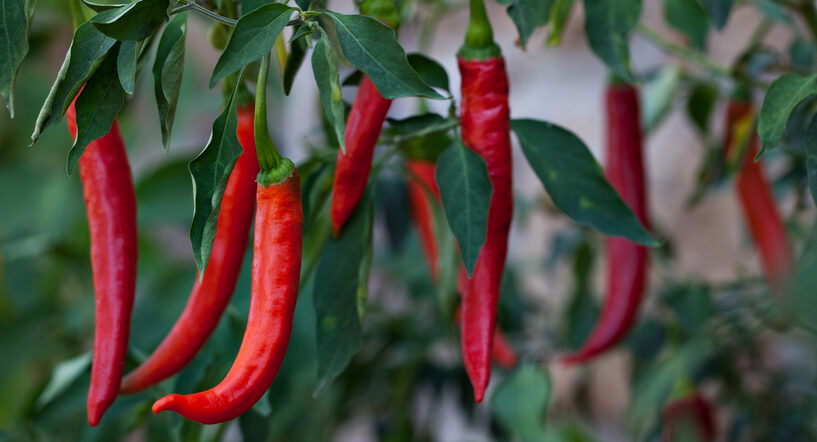
Days to Maturity: 90 days
Why Grow Cayenne Peppers in New Jersey?
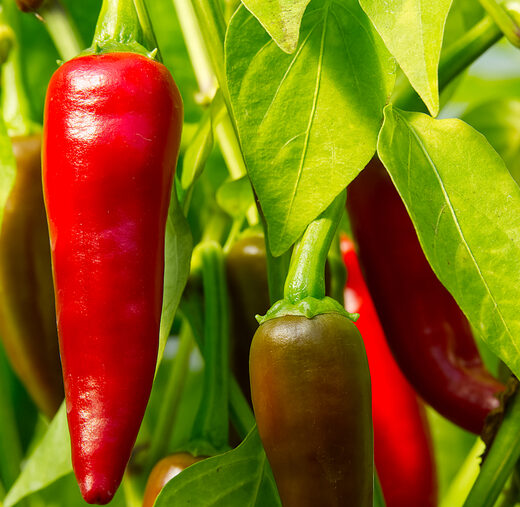
Easy to Grow:
- The cayenne pepper is a hot pepper that never loses it red color and flavor. Because it is a hybrid pepper it survives in almost all of New Jersey’s conditions and is perfect for New Jersey’s summers.
Perfect for All Types of Gardens:
- Some vegetables only do well in the ground. Not cayenne peppers. You can grow them in containers, window boxes, raised garden beds, and even in poor soil.
Thrives in Heat:
- As the summers get warmer Cayenne Peppers continue to get bigger and hotter. Look no further for a low-maintenance vegetable.
THESE Could Harm Your Peppers
Cold
- There are some types of Peppers that can tolerate cold. Cayenne Peppers are not one of them though. If there is a late frost in the spring they will die and if there is an early frost in the fall they will die. In addition, if late spring and early summer is cooler than usual the jalapeno pepper will not grow as well.
Wet & Rain
- Too much rain and wetness can cause your Cayenne Peppers to quickly become infected with fungus or other diseases that will cause the plant to die earlier than expected hindering the amount of peppers you’ll be able to harvest.
#8. Bulgarian Peppers
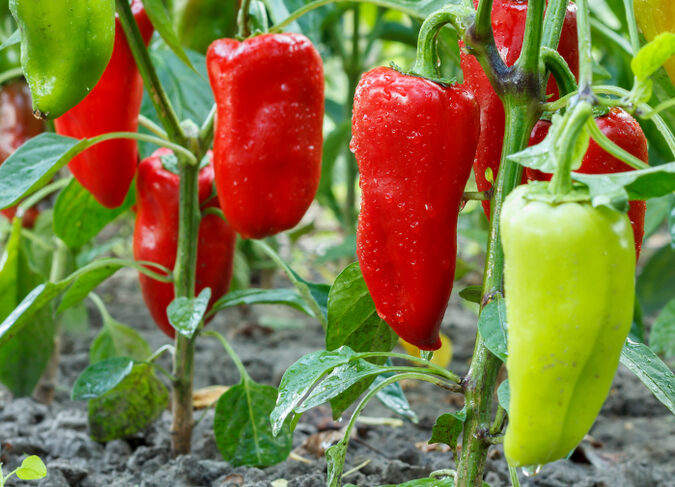
Days to Maturity: 80 Days
Why Grow Bulgarian Peppers in New Jersey?
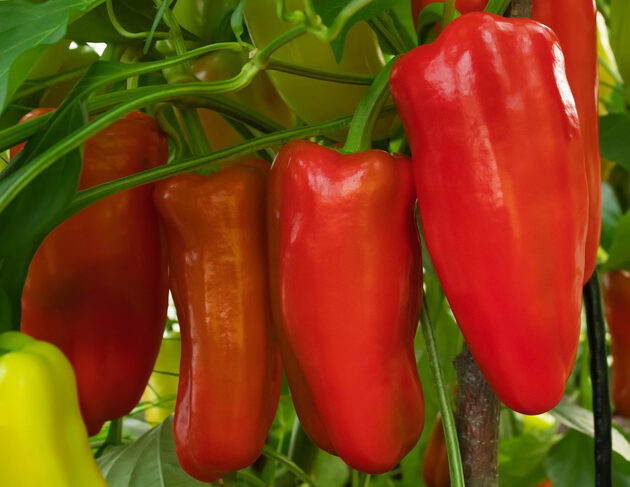
Thrives in Droughts:
- Unlike other vegetables, bulgarian peppers do not require a lot of water to grow, flower, and bloom into a crop that can be harvested more than once. This is great for the unusual dry summers.
Great for Vertical Gardening:
- If you want a vegetable that grows straight up, but not wide then look no further than cherry peppers. This type of pepper was created specifically for vertical gardening.
THESE Could Harm Your Bulgarian Peppers
Wind:
- Bulgarian peppers can get quite large. Because of this, high winds and storms can potentially cause your peppers to fall off the plant or become so heavy that they break your pepper branches. You should always tie your pepper plants to stakes in the ground.
Early Fall:
- Cooler weather, plenty of clouds, and early frost can always damage and kill your peppers and pepper plants. One of the biggest threats to your bulgarian pepper is poor weather which will limit the number of peppers you will receive.
#9. Poblano Peppers
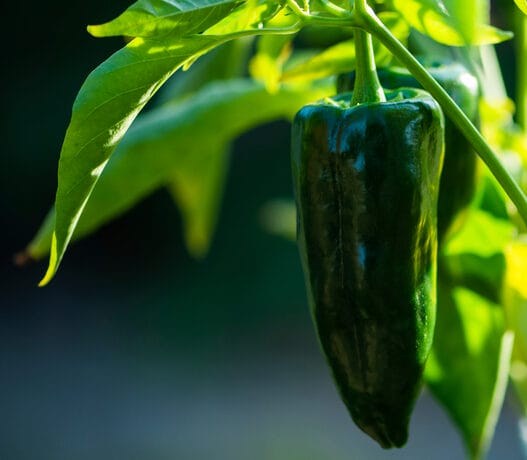
Days to Maturity: 65 Days
Why Grow Poblano Peppers in New Jersey?
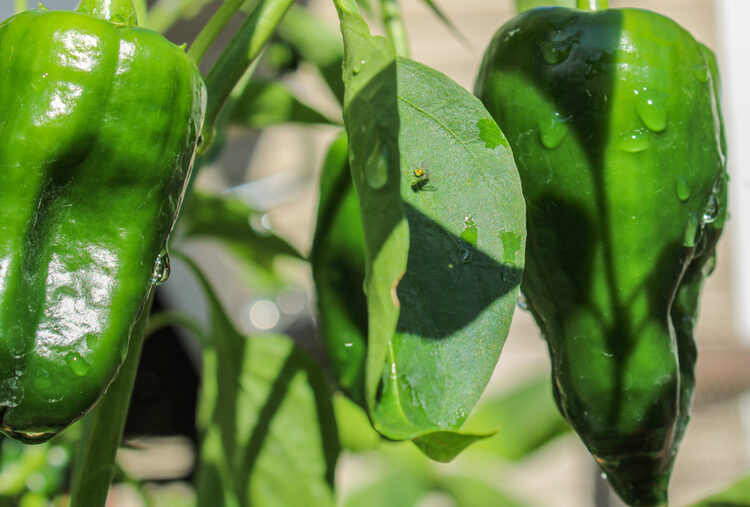
Heirloom:
- The Poblano pepper is a heirloom pepper, meaning it carries the best characteristics of peppers and have been grown for decades. Out of all the heirloom peppers it is the hardiest, tastiest, and easiest one to grow.
Most uses:
- Poblano Peppers are one of the most popular peppers to grow in New Jersey. The main reason is that it is one of the tastiest peppers with the most uses!
THESE Could Harm Your Peppers
Clay:
- Almost all of the peppers on this list can grow in any type of soil. The one exception is poblano peppers. Poblano Peppers need loamy and small particle soil. If it is planted in clay soil it will not grow at all or take too long to grow.
#10. Shishito Peppers
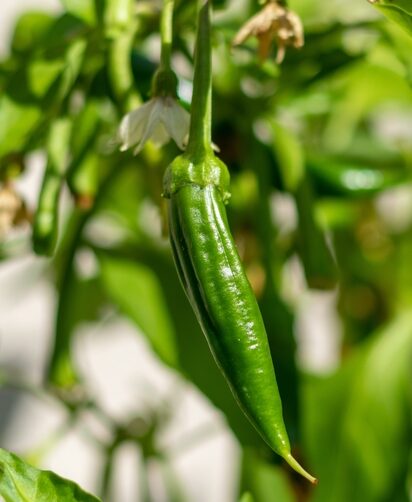
Days to Maturity: 60 Days
Why Grow Shishito Peppers in New Jersey?
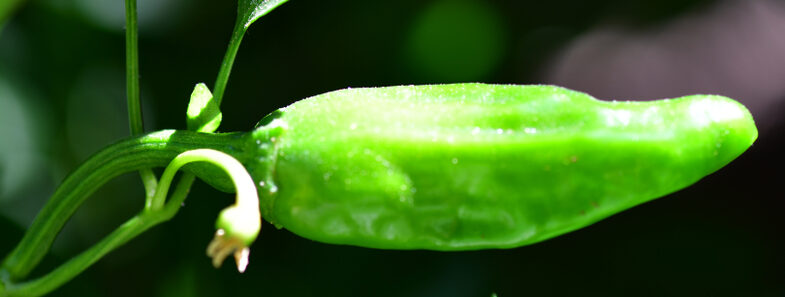
Healthy:
- All peppers are healthy, but the shishito pepper is becoming one of the most popular peppers to plant and grow in New Jersey due to its small size and how incredibly healthy it is.
Tasty:
- Out of all the peppers on this list, the shishito ppper are some of the tastiest peppers you can grow. They are perfect for salads, as an appetizer, and even in sauce.
THESE Could Harm Your Shishito Peppers
You:
This may seem strange, but the gardener is most prone to harm your shishito peppers. Most gardeners will harvest too many shishito peppers too early, will forget to water them, and not properly care for them.
Common Growing Factors of New Jerseys Best Peppers
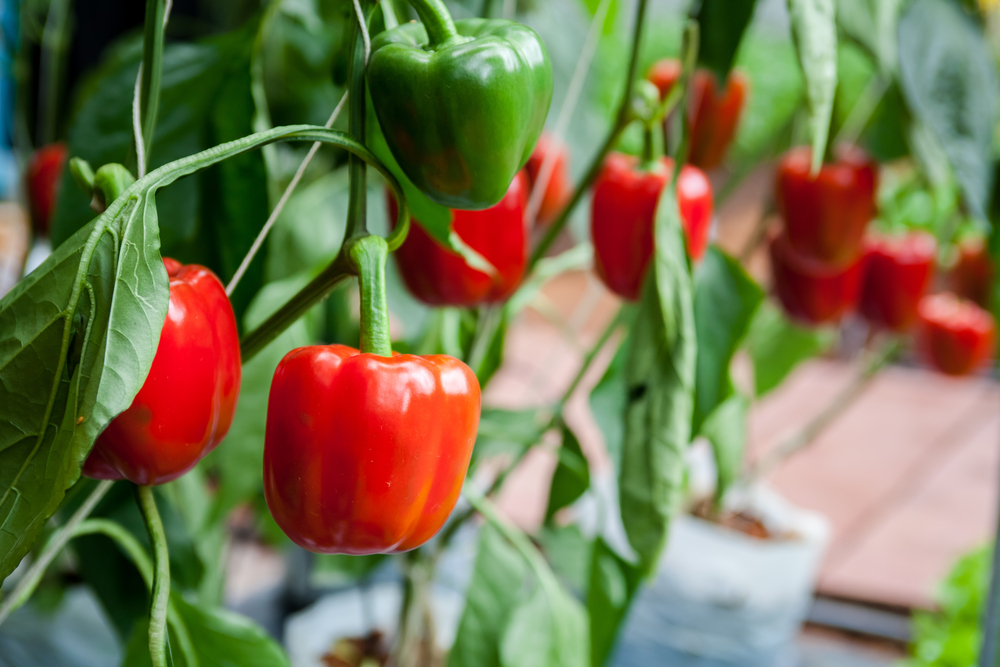
As a reminder, the below factors are common for the Best Peppers to Grow in New Jersey:
- Thrives in Heat & Drought
- Thrives in Cold
- Hardy against Pests & Insects
- Can be planted in ALL Types of Garden
- Have heavy harvests